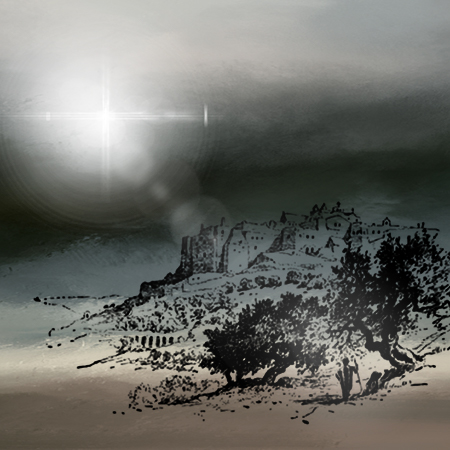46 And Mary said, “My soul magnifies the Lord,
47 and my spirit rejoices in God my Savior,
48 for he has looked on the humble estate of his servant.
For behold, from now on all generations will call me blessed;
49 for he who is mighty has done great things for me,
and holy is his name.
50 And his mercy is for those who fear him
from generation to generation.
51 He has shown strength with his arm;
he has scattered the proud in the thoughts of their hearts;
52 he has brought down the mighty from their thrones
and exalted those of humble estate;
53 he has filled the hungry with good things,
and the rich he has sent away empty.
54 He has helped his servant Israel,
in remembrance of his mercy,
55 as he spoke to our fathers,
to Abraham and to his offspring forever.”
Our 2016 Advent series is going to focus on the connections between Genesis and the Christmas narratives of Matthew and Luke. What’s striking is that both the book of Genesis and the birth narratives of Matthew and Luke each center on a family and their response to the Word of the Lord. While our first parents rebelled against God’s Word, Joseph and Mary responded to it in simple faith.
In the immediate aftermath of their sin, God graciously sought out Adam and Eve. Before pronouncing any kind of judgment upon them, God first addressed their enemy who had successfully deceived them. In Gen. 3:15, He promised that one day a Rescuer would come who would defeat Satan in order to deliver her and her offspring from their enemies. It is curious given the nature of Adam and Eve’s rebellion against God that this Rescuer is referred to as the seed “of the woman” rather than “of the woman and man.” In Gen. 5:3, we see that Adam fathered a son “in his own likeness and after his image,” the same language used of God’s work in “fathering” mankind in Gen. 1:26. The difference at this point was that The Fall had occurred and, therefore, to be fathered by a fallen man meant that each child bore the fallen image and nature of their human father. As the storyline of Scripture further progresses, it clarifies that the Rescuer will come from the nation of Israel. This is developed most clearly in the prophets where we read in Isa. 7:14 that “a virgin shall conceive and bear a son” who will be referred to as Immanuel (“God with us”).
All of this stands in the background of Luke’s birth narrative which begins by describing the lead-up to the birth of John the Baptist before focusing in on Mary in Luke 1:26-38. As we are first introduced to Mary, we find that she is not a warrior like Deborah in Judges…she’s not a Princess like Esther…she is a humble peasant girl from an insignificant portion of Judea, the armpit of the Roman Empire. Given the content of the message, she would have in all likelihood understood that this meant she would be the mother of Messiah, but at the same time, she would not have understood the full implications of that. She would have understood the reference to the throne of David as referring to Messiah, but she surely did not fully grasp the divine aspect of this child’s identity.
In contrast to how Eve disregarded the Word of the Lord, Mary responded in faith saying, “Let it be to me according to your Word.” This willingness to trust the Word of the Lord demonstrated the grace or “favor” that God had shown to Mary and was evidenced by her conduct. It would be through this woman that “the seed of the woman” which had been promised so long ago would come. Because He would not have an earthly father, He could bear the image of God in His humanity without bearing the effects of The Fall. This was the great need of humanity. The Rescuer must be like us and yet distinct from us in this important way.
The story of Mary illustrates the lengths to which God would go to rescue His people, and her faith serves as an illustration for how the people of God are to respond to that work which He has accomplished.
Join us Sunday as we come together to remember the incarnation of Christ, the Seed of the Woman, born to redeem His people!
Soli Deo Gloria.
-Thomas

